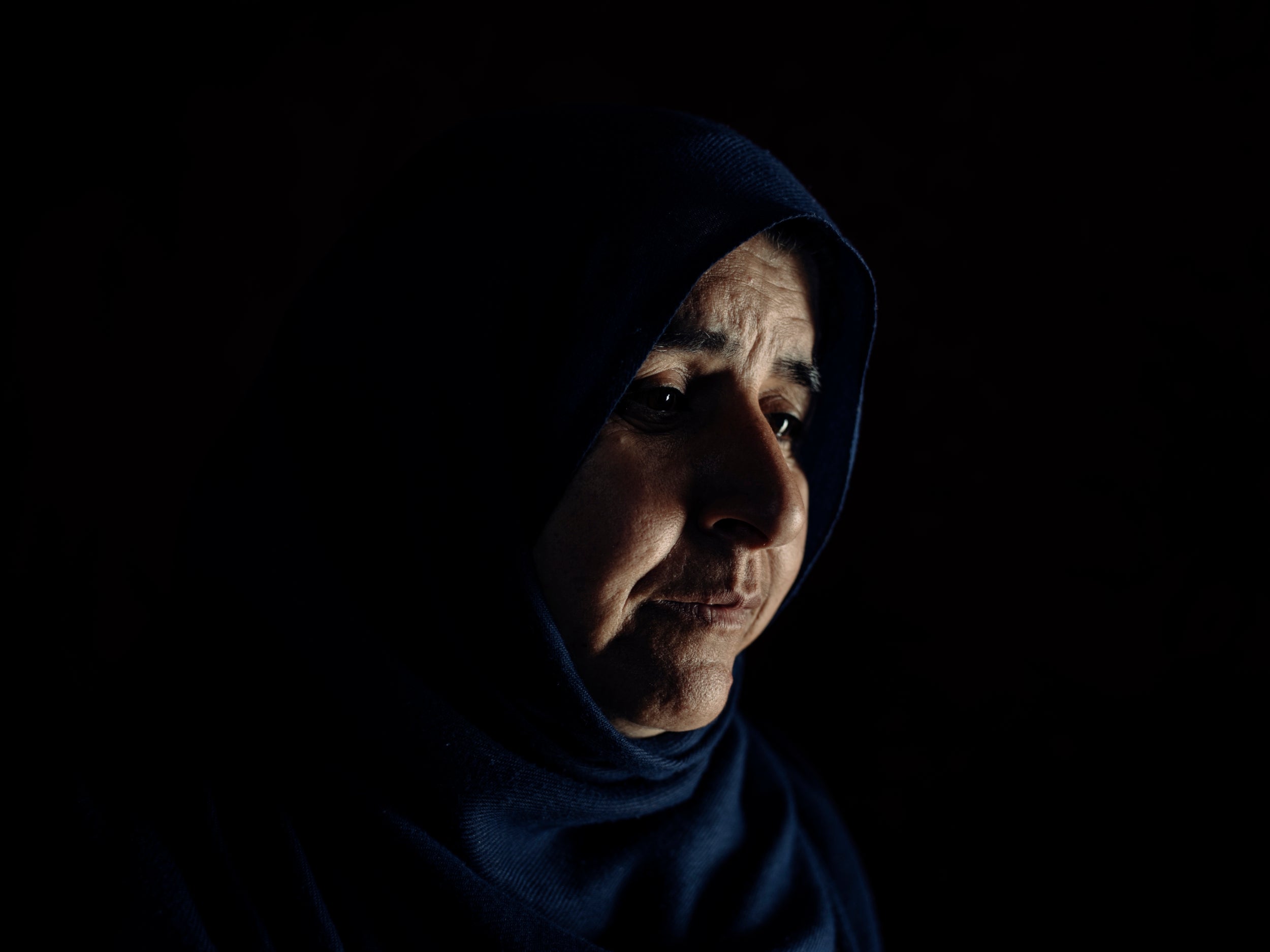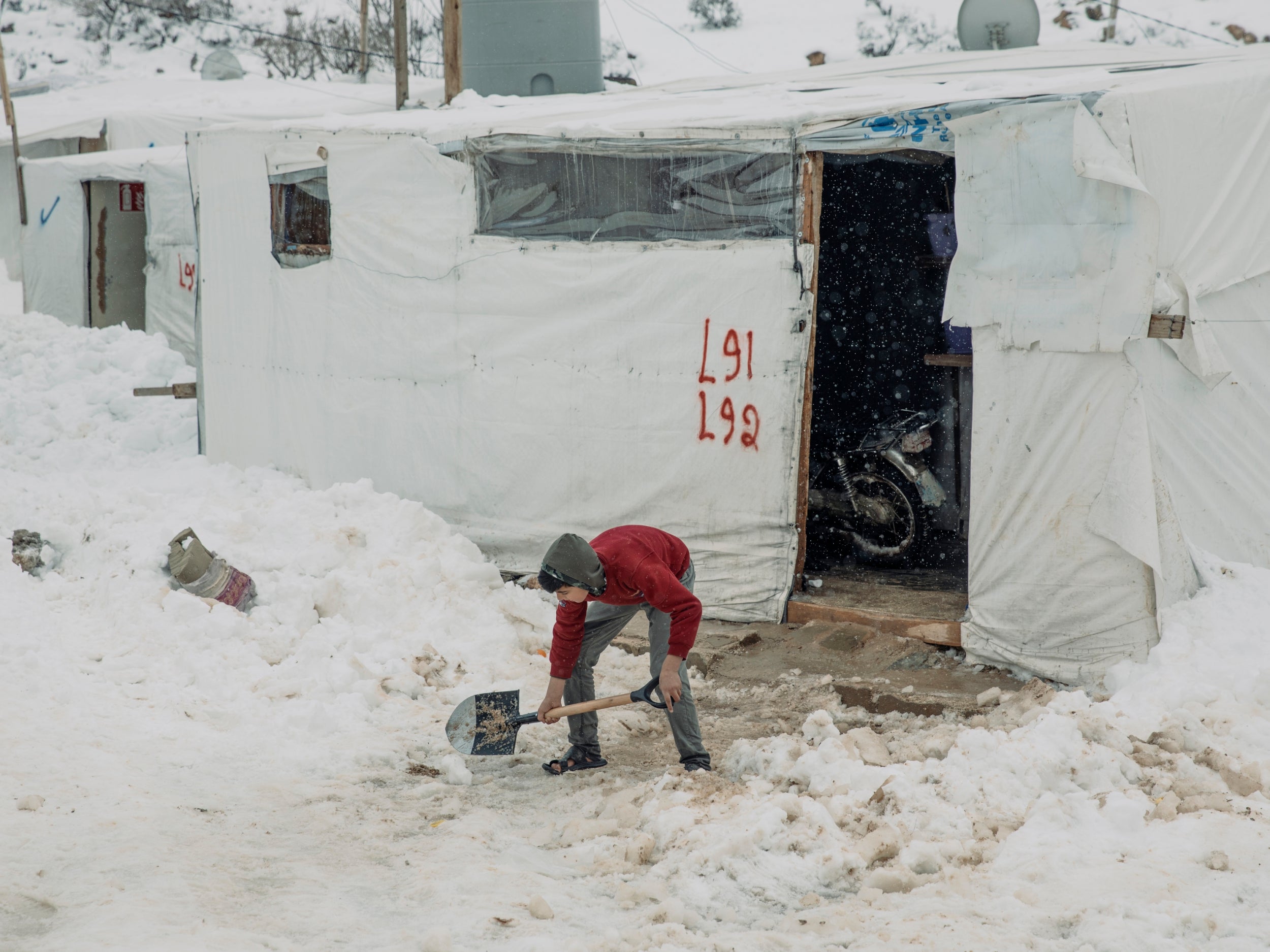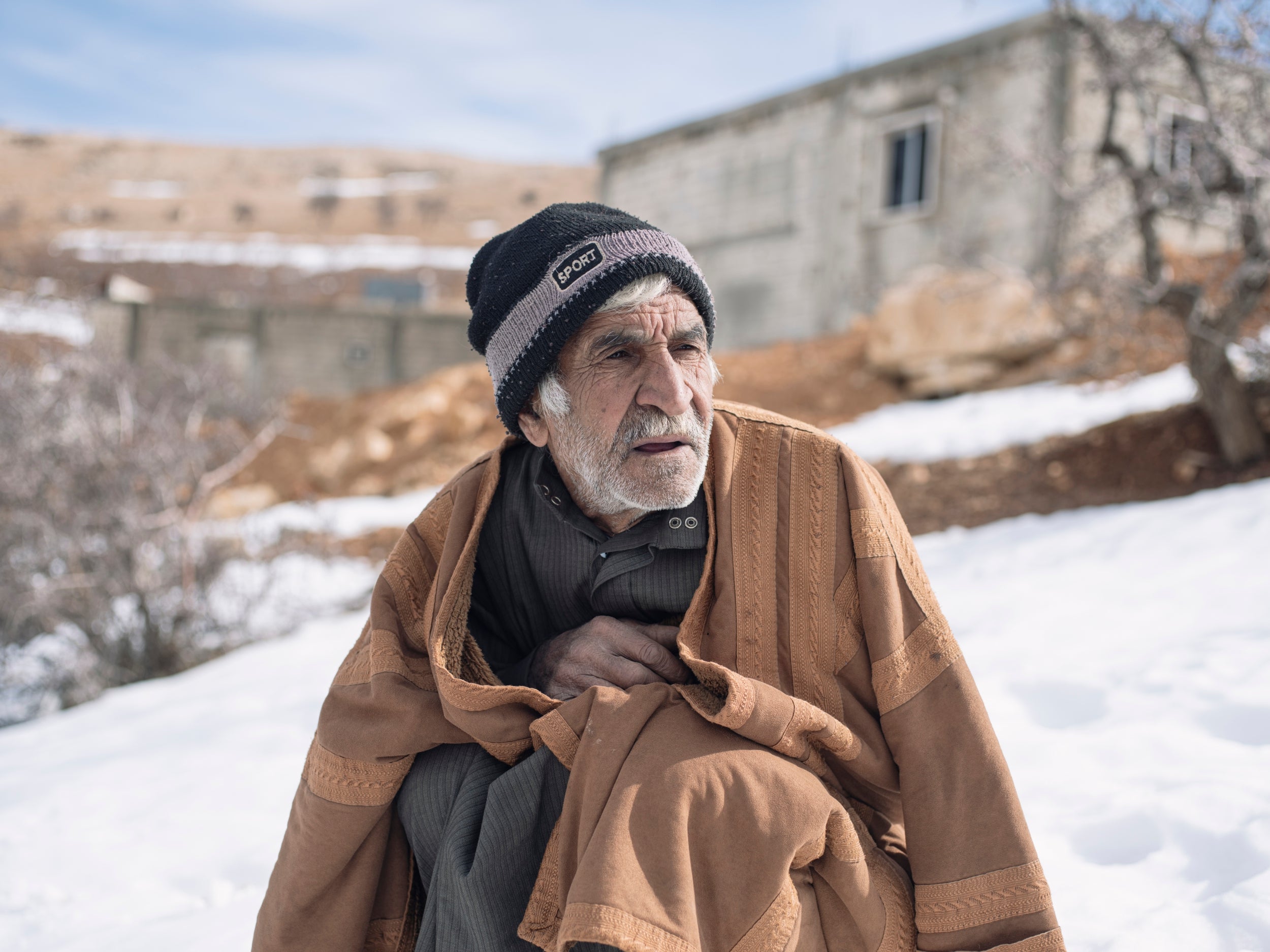Syrian refugees face their ninth winter in the mountains of Lebanon
Paddy Dowling, photojournalist for The Independent, returned from the mountains of Arsal and discovered how the humanitarian relief effort to help Syrian refugees in Lebanon is being exacerbated by the country’s economic context
Your support helps us to tell the story
From reproductive rights to climate change to Big Tech, The Independent is on the ground when the story is developing. Whether it's investigating the financials of Elon Musk's pro-Trump PAC or producing our latest documentary, 'The A Word', which shines a light on the American women fighting for reproductive rights, we know how important it is to parse out the facts from the messaging.
At such a critical moment in US history, we need reporters on the ground. Your donation allows us to keep sending journalists to speak to both sides of the story.
The Independent is trusted by Americans across the entire political spectrum. And unlike many other quality news outlets, we choose not to lock Americans out of our reporting and analysis with paywalls. We believe quality journalism should be available to everyone, paid for by those who can afford it.
Your support makes all the difference.The Syrian civil war has displaced 6.2 million people and created more than 5.6 million refugees, spilling across borders into neighbouring countries. Lebanon is shouldering the burden with 914,648 registered refugees, according to the UN Refugee Agency (UNHCR). Efforts of aid agencies delivering supplies to the most vulnerable in Lebanon have been made more difficult by the financial crisis facing the country.
Syrian refugee Hanan, 36, explains: “I pray to God I can return home from this nightmare. The situation is now hopeless. Syria is broken. Lebanon is broken too. If people from outside still visit, then perhaps there is a chance, otherwise all we feel is abandonment.”
Hanan fled her home in Reef Dimashq in 2013 after intensive shelling. Many did, with only the clothes they wore, leaving behind all their possessions. With her husband imprisoned, she arrived alone to her new home, a tent perched up high among the snow-capped mountains of Arsal in Lebanon.
This region hosts 39,000 refugees across 133 informal tented settlements and other shelters. The UNHCR reports 85,022 households in Lebanon are headed by females, and 8,163 of those are single women, their husbands killed in conflict, imprisoned for not joining the regime, or their husbands were too ill to travel. Around 40 per cent of refugees like Hanan receive food assistance from the World Food Programme. Usually, this amounts to 40,000 Lebanese Pounds (LBP) for herself and her two daughters, historically worth $80 (£61) pegged at US dollar rate of LBP1,500.
Lebanon’s economy has been dependent on a strong flow of dollars into Beirut’s banking sector. That supply has diminished, and economic activity has slowed, fuelled by what economists estimate is a 30 per cent rise in inflation and as banks struggle with the liquidity crisis. Black market rates have pushed the unofficial exchange on the US dollar as high as LBP2,300, which means aid organisations are facing enormous challenges transferring donations to banks and accessing those funds. Banks are restricting withdrawals to $200 per week.

A statement released by former labour minister, Mohammad Kabbara, reports unemployment in Lebanon stands at 25 per cent. With unemployment now at crisis levels, refugees are unable to find work to support the shortfall.
This provides little consolation for refugees like Nayef, 35, a former law student, now unemployed and sat by his unlit stove as his family huddle together. He explains: “When the paraffin runs out and we cannot afford to buy more, we are forced to burn what he can find to keep the tent warm, this includes; plastic sheeting, tarpaulin and even old shoes.” In the depths of winter, temperatures in Arsal typically plunge as low as -8C by night. His family, including his two daughters aged two and five, have not eaten for two days.
The economic crisis in Lebanon has not only affected the most vulnerable Syrian and Palestinian refugees but also middle-income Lebanese nationals, according to the UNHCR. The enormous burden shouldered by countries in the region such as Iraq, Jordan, Egypt, Turkey and Lebanon has placed huge pressure on resources. Lebanon under its political and economic context may see as many as 2 million Lebanese nationals fall below the poverty line by the end of 2020, according to Richard Kouyoumjian, the minister of social affairs.

Mireille Girard, the UNHCR country representative in Lebanon, speaking exclusively to The Independent, explains: “The immediate future and medium-term looks very grim. With 73 per cent of Syrian refugees in Lebanon living below the poverty line and 55 per cent living in extreme poverty, young children are forced into work or perhaps begging on the streets. The UNHCR is working miracles to address the humanitarian relief in Lebanon, here and now. The future is another question.”
Established in 1992, Qatar Charity operates in more than 50 countries, helping 10 million beneficiaries across the globe each year. Ahmed Al Rumaihi, the head of relief and international partnerships for the non-governmental organisation, says: “We responded to the refugee crisis in its early stages, and through our partnerships, we have delivered in excess of $30m in aid to Syrian refugees in Lebanon over the past five years. This included the construction and rehabilitation of tents, distribution of food and heating oil, provision of health services and educational support for students among others. However, there is still so much work to do.”

He continues: “We must show solidarity not just to those who have been displaced from their country of origin but also those host nations who shoulder the enormous burden. With donor fatigue dominant in this crisis, we urge the international community to comply with their pledges for those Syrians seeking refuge in neighbouring countries and to bring burden-sharing to the foreground.”
Girard commends NGOs such as Qatar Charity for the important role they have played and their commitment to the crisis: “We need to mobilise everyone, not one agency can respond to this crisis alone.”
Girard, with perhaps one of the most challenging roles in the sector, leaves us with her final thoughts: “With fewer people talking about the Syrian refugee crisis, now in its ninth year in Lebanon, it does not mean the problem has disappeared. We need to re-engage everyone to act and do something about it. Civil society, academics and the private sector can all help.”
With the media spotlight now firmly elsewhere, perhaps the easiest solution is to look the other way in hope that the crisis will miraculously resolve itself. The truth remains, Syrian refugees barely surviving in countries like Lebanon require assistance from the international community now more than ever before.
To donate to Syrian refugees in Lebanon, please visit qcharity.org/en/qa
Join our commenting forum
Join thought-provoking conversations, follow other Independent readers and see their replies
Comments